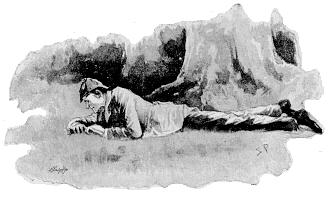
On December 9, US president Barack Obama ordered a “review” of — an investigation into — alleged Russian hacking aimed at influencing the outcome of the 2016 US presidential election.
Supporters of Democratic nominee Hillary Clinton lauded Obama’s order, which seems aimed at, well, influencing the outcome of the 2016 presidential election.
On December 19, the electors chosen by voters on November 8 will meet in their respective state capitals to choose the next president of the United States. Under the existing system, those electors are required to vote for the candidate who carried their state’s popular vote. Many Clinton supporters want the electors to instead install Clinton (or a “compromise candidate”) in a coup d’etat. They’ve added Obama’s “review” order to their arguments in favor of overthrowing the US government.
When is it proper to investigate alleged wrongdoing by, or on behalf of, powerful politicians? Apparently it depends.
In the months leading up to the popular vote, Clinton and her supporters first praised, then condemned, FBI direct James Comey.
In July, Comey announced that he would recommend against prosecuting Hillary Clinton for her criminally negligent storage of classified information on an illegal private server as Secretary of State.
Then, 11 days before the election, Comey informed Congress of possible new evidence in the matter. That evidence apparently came to naught, but the Clinton campaign blew its stack. Clinton’s supporters are still calling for Comey’s head. He’s one of their scapegoats not just for Clinton’s crimes, but for her mediocre campaign and losing performance (the other scapegoat is, of course, !THEM RUSSIANS!).
Throughout the “Servergate” controversy, Clinton’s supporters routinely complained that all inquiries into her actions constituted illicit attempts to affect the outcome of the election, and that law enforcement should back away from politically sensitive investigations near election time.
Apparently that complaint only applies when the investigation might hurt Hillary Clinton. When Donald Trump might be damaged, the week before the final vote strikes them as perfect timing for an investigation.
The publicly disclosed evidence against Clinton was overwhelming. Comey’s argument against prosecuting her came down to “well, after all, she’s Hillary Clinton.”
The publicly disclosed evidence that Vladimir Putin’s regime attempted to influence the election of the outcome other than through propaganda? Zero. Zip. Zilch. Nada. The only thing we’ve seen so far are vague assertions about “methods consistent with” state-backed hacking. So far, the argument for an investigation that might hurt Donald Trump is “well, after all, he’s Donald Trump.”
I’m perfectly willing to believe that both Clinton and Trump are bad actors, so crooked that they require staff trained to screw their pants on for them in the morning. But when it comes to investigation timing, how about one set of rules for everyone?
Thomas L. Knapp (Twitter: @thomaslknapp) is director and senior news analyst at the William Lloyd Garrison Center for Libertarian Advocacy Journalism (thegarrisoncenter.org). He lives and works in north central Florida.
PUBLICATION/CITATION HISTORY
- “Servergate/Hackergate: The Case of the Investigatory Double Standard,” by Thomas L. Knapp, Ventura County, California Citizens Journal, 12/15/16
- “Servergate/Hackergate: The case of the investigatory double standard,” by Thomas L. Knapp, Pahrump Valley, Nevada Times, 12/15/16
- “Servergate/Hackergate: The Case of the Investigatory Double Standard,” by Thomas L. Knapp, Key West: The Newspaper, 12/16/16
- “Servergate/Hackergate: The Case of the Investigatory Double Standard,” Hammond, Louisiana Daily Star [print edition], 12/16/16
- “Servergate/Hackergate: The Case of the Investigatory Double Standard,” by Thomas L. Knapp, OpEdNews, 12/17/16
- “Servergate-Hackergate: Investigatory double standard,” by Thomas L. Knapp, Bucks County, Pennsylvania Courier Times, 12/19/16
- “Servergate/Hackergate: double standard,” by Thomas L. Knapp, Orangeburg, South Carolina Times & Democrat, 12/19/16


